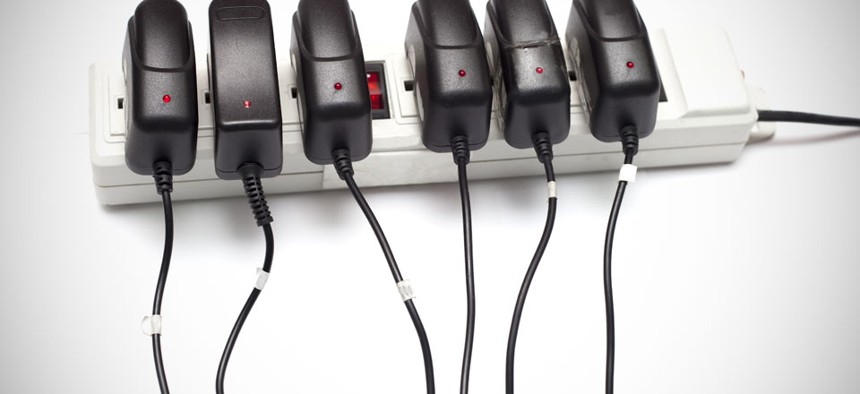The Energy Department Wants to Make Your Phone Charger More Efficient

Amnarj Tanongrattana/Shutterstock.com
DOE estimates that new standards will put close to $4 billion back in the pockets of American consumers.
Sick of spending all your money on your cell-phone bill? The Energy Department plans to boost energy savings for laptop and phone chargers, and it's betting the new standards will save you money.
The department will strengthen energy-efficiency standards for external power supplies, products that take the form of cell-phone and laptop chargers as well as power cords for a host of other electronic devices, including video-game consoles, in homes across the country, the administration announced Monday.
DOE estimates that the standards will put close to $4 billion back in the pockets of American consumers, while lowering carbon emissions by 47 million metric tons over the next 30 years. The EPS standards will build on 2007 standards that are designed to boost the efficiency of the devices by nearly a third.
The department is no stranger to energy-efficiency. It recently finalized energy-efficiency standards for metal halide lamps, a type of light fixture commonly used in parking lots and big-box stores. It has also set out energy-savings standards for household and commercial appliances.
DOE emphasized that the external power supply standards fall under the heading of the president's larger climate-change agenda.
"Building on President Obama's State of the Union address, which called for reducing carbon pollution and helping communities move to greater energy efficiency, the Energy Department today announced new efficiency standards for external power supplies," a press release stated.
These latest efficiency standards come as the administration faces heightened scrutiny from environmental advocates looking to judge the president's commitment to acting on climate change in the lead up to a final decision on the Keystone XL oil sands pipeline.
Debate over the pipeline intensified last week, when the State Department released a report concluding that approving the project would not significantly speed oil sands development in Canada, a finding that environmental groups have contested.
(Image via Amnarj Tanongrattana/Shutterstock.com)
NEXT STORY: A new goal for data center consolidation?






